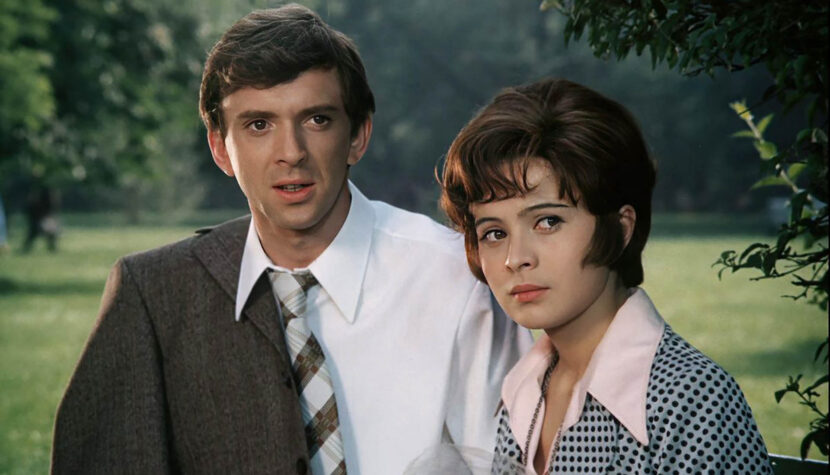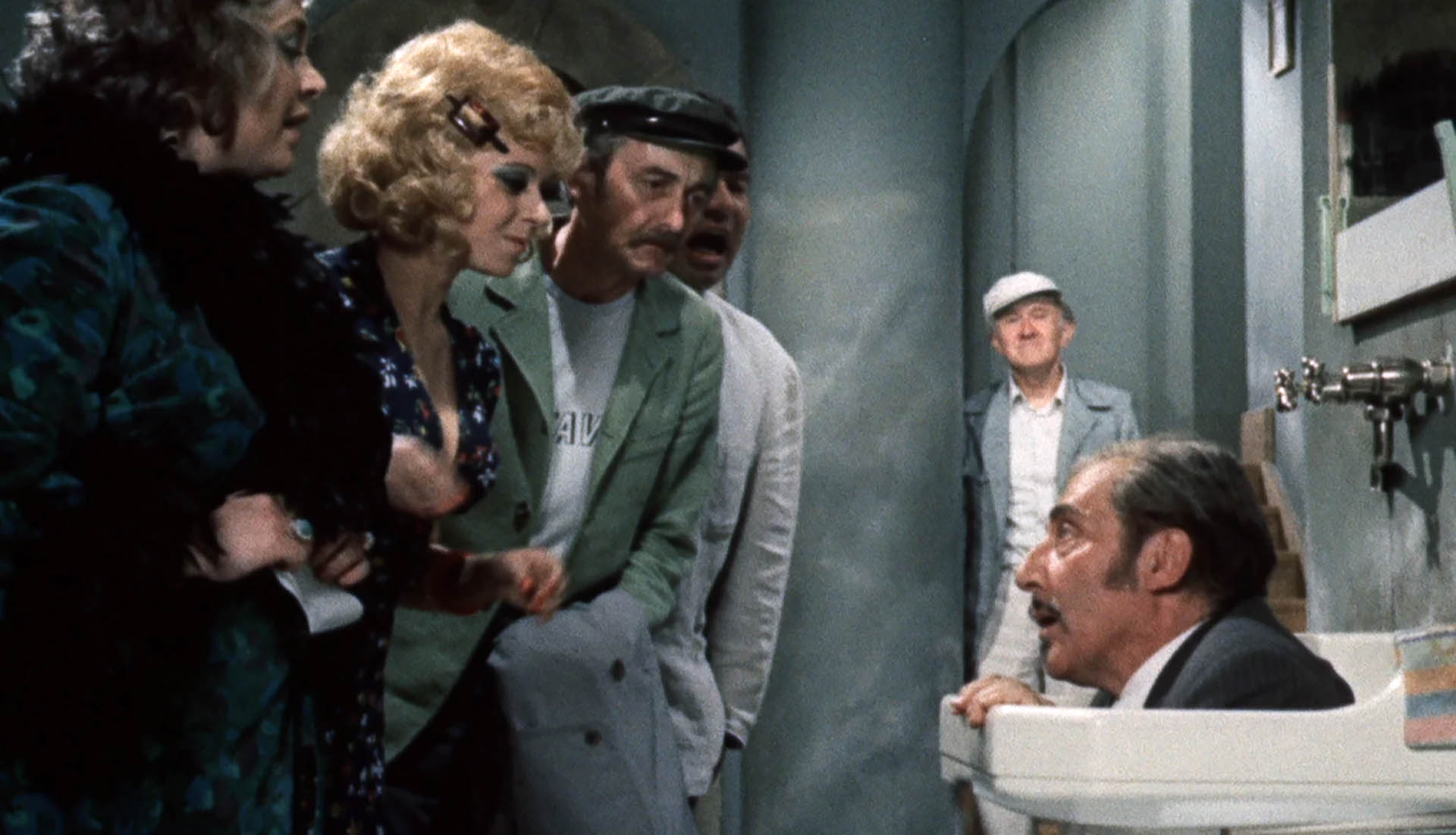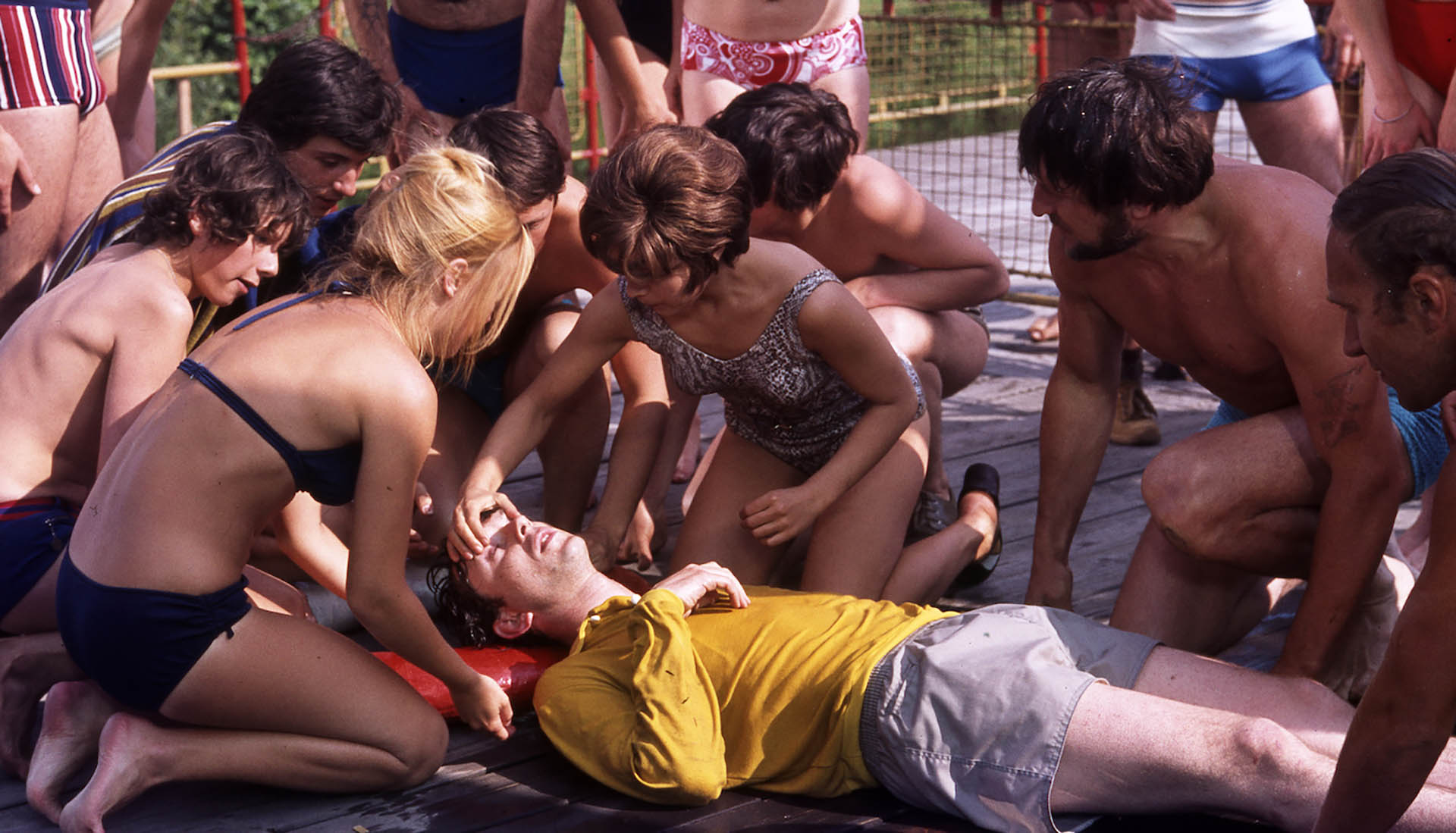“How to Drown Dr. Mracek, the Lawyer”. Science fiction for those with a sense of detachment

Near the banks of the Vltava River stands an old, damp house. The Wassermann family lives there with their helpers. They control water spirits throughout Czechoslovakia, growing wealthy by collecting the souls of drowned people from the water, which they keep in cups and trade for precious pearls. The problem begins when the city of Prague wants to relocate them to a modern apartment with central heating. Meanwhile, in city laboratories, work is underway to enhance humans with the ability to transform into fish. I’ve had the pleasure of writing about three science fiction comedies by Václav Vorlíček (Spinach Can Be Dangerous, You Are a Widow, Sir!, Who Wants to Kill Jessie?). The best of his career that remains for me to cover is How to Drown Dr. Mracek, the Lawyer, an equally abstract story at the intersection of science fiction, fantasy, and comedy, which only viewers with a certain detachment from cinema will enjoy.

Such detachment is necessary because the worlds of fantasy and science fiction do not get along well, with the latter considering itself superior and more intelligent, despite the rest of the world outside of fantasy viewing it as foolish and naive. However, the Czechs decided to combine these worlds on the banks of the Vltava in Prague, where a somewhat forgotten community of water spirits lives, akin to fairy tales about dragons. Reality is slowly catching up with them, and their safe haven in the form of a damp, old house is set for demolition. Even their dominance over humans seems to be shaking, as a certain Professor Ikebara successfully developed a theory, and then experimental research, that humans can gain the abilities of fish, such as breathing underwater. The water spirit lineage is therefore doomed to extinction. Even in the reality of the People’s Republic of Poland, progress exists and inevitably eliminates those who cannot keep up with it. The water spirits, led by the head of Czech swimmers, Wassermann, prefer to use wands and collect drowned souls from the river to make a living, instead of working normally in society. The problem is that they don’t want to, as it would destroy their identity as water spirits. There is some bitter Czech reflection here on being a humble member of a socialist society, equating to forever giving up freedom. Is it possible to find a compromise? According to the film, no, because one cannot be half-free. Wassermann must therefore abandon wand-waving and freeloading to survive. “What I don’t drown myself, I don’t have” was his life motto, so on the other hand, it’s better that such water spirits who value parasitism most lose their power.
As for the expansion of the human species, the ocean depths seem as unreachable as space. This desire to conquer new territories is evident even in Czech science fiction comedy, though I am far from calling it an eco-friendly film. The world of rivers, seas, and oceans is in Czech interpretation that unattainable alternative that could free us from all obligations on land, not just political ones. However, there are always consequences. In the truly conceptually crazy film How to Drown Dr. Mracek, the Lawyer, the proficiency in executing the screenplay and the lack of pretentiousness in presenting this intersection of the real and fantasy worlds is most surprising, something cinema still struggles with today. Václav Vorlíček in the 1970s did not have this issue, making these various fantastic events seem naturally integrated with the real world familiar to all of us, especially those who have had the pleasure of walking the streets of Prague and looking at the murky, greenish depths of the Vltava.

I also hope that fans of science fiction and fantasy with high expectations for special effects will be positively surprised. Václav Vorlíček’s film still holds up aesthetically and technically. For this review, I watched it again and am still amazed and delighted by the ease and visual realism with which the water spirit Wassermann enters a sink and disappears, only to reappear from a drain after a swimmer’s meeting and, for a while, converses with the lower half of his body still in the pipe. Similarly, the disappearing and transforming of water spirits into various objects, like shoes or flour, are impressive. Unfortunately, there are not many underwater shots, which would be welcome in a story about a water species; however, the basement scenes where Wassermann stores his collected souls in cups have an underwater style, and I have no intention of criticizing them. One scene particularly worth praising shows Matylda Wassermann first as dough and then as a human, albeit slightly enlarged as if the baking soda worked too well. This immediately reminded me of the scene with the enlarged Gandalf in relation to the hobbits. In this respect, Vorlíček’s film has nothing to be ashamed of, even compared to The Lord of the Rings. There are also less aesthetically pleasing moments, such as the set design, but then again, the gray world of Prague at the time did not have to sparkle with colorful HDR scenes. Thus, I recommend the story of the desperate attempts to drown Dr. Mráček in Czech as an alternative to contemporary serious science fiction dealing with the condition of humanity and its relationship with AI and other species from the farthest reaches of the universe.

